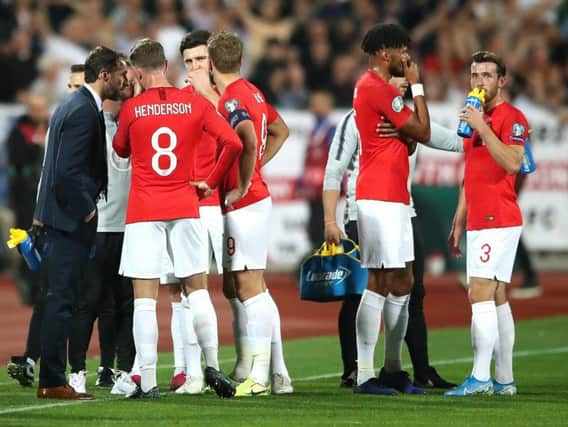Football can hold a mirror up to society and confront racism - Anthony Clavane


This week, in Sofia, the beautiful game turned ugly. Before and during England’s Euro 2020 qualifier against Bulgaria, black players were racially abused by sections of the home crowd.
Light Night Leeds showed the way artworks can bring communities together and unite people from different backgrounds in their wonderment of eye-catching installations.
Advertisement
Hide AdAdvertisement
Hide AdBy contrast, the Bulgarian debacle shamed football, revealing it to be, at its worst, a divisive, backward, hateful sport.
Fake news was around long before Brexit and Donald Trump and it still needs to be challenged - Anthony ClavaneIt is too easy, however, to contrast the beauty of art with the ugliness of soccer. According to an Arts Council England report, black and minority ethnic representation is one of a number of “long-standing issues which urgently need addressing”. Another recent study revealed a “huge disparity” in creative teaching across society.
It concluded: “When students’ experience of subjects such as art and design, dance, drama and music is limited or indeed non-existent, they become the province of the privileged, whose families can afford to give them access to the experiences of arts and culture.”
As a lover of both the arts and football, I have been struck by the one thing which unites both: storytelling.
Advertisement
Hide AdAdvertisement
Hide AdThe dignified defiance of Tyrone Mings, Raheem Sterling and Marcus Rashford, backed by manager Gareth Southgate, told its own story.
As Southgate said, during last year’s World Cup adventure: “We have the chance to affect something bigger than ourselves. We are a team with our diversity and with our youth that represents modern England. In England we’ve spent a bit of time being a bit lost as to what our modern identity is and I think as a team we represent that modern identity, and hopefully people can connect with us.”
Racism row latest - Gareth Southgate was first class, says Sheffield United manager Chris WilderUp until this point, England managers had not tended to place their teams’ achievements in a wider cultural context. Southgate’s argument – that his side represented something that was bigger than football – was echoed by the Light Night Leeds artwork depicting two dazzling footballers.
The story of a football team is often, whether we like it or not, presented as a narrative of identity. Since the 1966 World Cup win, the England men’s performances have taken on a wider significance. Whatever else seems to be going on in the affairs of the nation, whether it be a war, a political upheaval or a referendum exposing deep divisions, the great bulk of the population appears to come together for a few weeks every couple of years to invest its patriotic emotions in an international campaign.
Advertisement
Hide AdAdvertisement
Hide Ad“Short of war,” wrote the sociologist Ellis Cashmore, “there’s no more effective way of galvanising English identity than football against another nation. When the England team is involved in a big game, the clock of history seems to stop.”
By causing the stadium clock in Sofia to be stopped twice because of monkey chants – the first time this has happened in such a high-profile sporting event – the players, as the former Arsenal striker Ian Wright noted, were creating a seminal moment in the story of football. Wright drew parallels with civil rights activists Martin Luther King Jr and Malcolm X.
Anthony Clavane: It might be unfashionable to be so optimistic but I like to think Leeds is about to enter another golden ageThe New Statesman’s Sunder Katwala suggested this could be a turning point in the story of a more inclusive patriotism. “Our footballers, cricketers and athletes,” he wrote, “have done more than any politician or Quango to change our perception of who we, both the British and the English, are.”
More, in fact, than any artist.
Eleven players in Southgate’s 2018 squad were black or mixed race. Picking the most multicultural England group ever to go to a World Cup, in an era of divisiveness, was a powerful statement to make.
Advertisement
Hide AdAdvertisement
Hide AdFootOf course I go to theatres and stadiums to be entertained, cheer on triumphant displays and see outstanding performances. But, watching the outstanding performances of Mings, Sterling and Rashford in Sofia – in the face of such disgusting provocation – was a timely reminder that sport, like art, can hold up a mirror to society and make an important statement about the state of the nation.